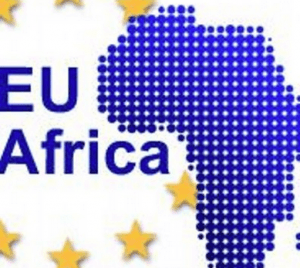WACOMP to strengthen Ghana’s export competitiveness
 The European Union (EU) has supported Ghana with €6,350.00 under the West Africa Competitiveness Programme (WACOMP) to strengthen her competitiveness in export through enhanced valued chain.
The European Union (EU) has supported Ghana with €6,350.00 under the West Africa Competitiveness Programme (WACOMP) to strengthen her competitiveness in export through enhanced valued chain.
The programme, which started in February, 2019, is a partnership between EU and the Economic Community of West African States (ECOWAS), coordinated by the Ministry of Trade and Industry and implemented by the United Nations Industrial Development Organisation (UNIDO) for four years.
Its objective is to strengthen the competitiveness of ECOWAS integration into the regional and international trading system, including the newly established African Continental Free Trade Area.
The project aims to improve the performance and growth of three value chains – cassava, fruits (mango and pineapple) and cosmetics and personal care products by improving their quality for export.
Mr Juan Pablo Davila, the Programme Manager, UNIDO, at a stakeholder briefing on the project in Accra, said WACOMP would be carried out in the ECOWAS member states through national components in each country.
Touching on the Ghanaian context, Mr Davila said the programme would improve the export competitiveness of the Ghanaian economy through enhanced value-added, low carbon, sustainable production and processing and an increased access to regional and international market.
These sectors are in line with the priorities of government and have a high potential for industrialisation and job creation.
Mr Davila said over the last decade, Ghana had developed its economic co-operation, integration and trade exchange level with the world, adding that the country had implemented ECOWAS common external tariff and ratified the Economic Partnership Agreement (EPA).
He explained that these initiatives would lead to tariff-free exports of goods towards Europe and increased investment to Ghana.
A speech read on behalf of Mr Alan Kyeremanten, the Minister of Trade and Industry, commended the EU for selecting Ghana as one of the beneficiaries for the initiative, and was confident of its successful completion.
He said the programme was in line with the Ghana Beyond Aid agenda to improve economic governance and business environment and maximize the benefit of EPA for the country. He pledged government’s support for the successful implementation of the programme, leading to the development and the enhancement of the competitiveness of trade product groups, with strong regional and global value chain potentials for job creation and growth.
Mr Zolta Agai, the EU Head of Cooperation in Ghana, said the Union was supporting the programme because Ghana had a strong potential to increase its agri-business export for the international market.
Participants called for the addressing of challenges in the value chain. These include lack of guidance for the implementation of processes and market’s standards requirements, and inadequate labelling and packaging of products to be competitive in the global market.
Source: GNA
